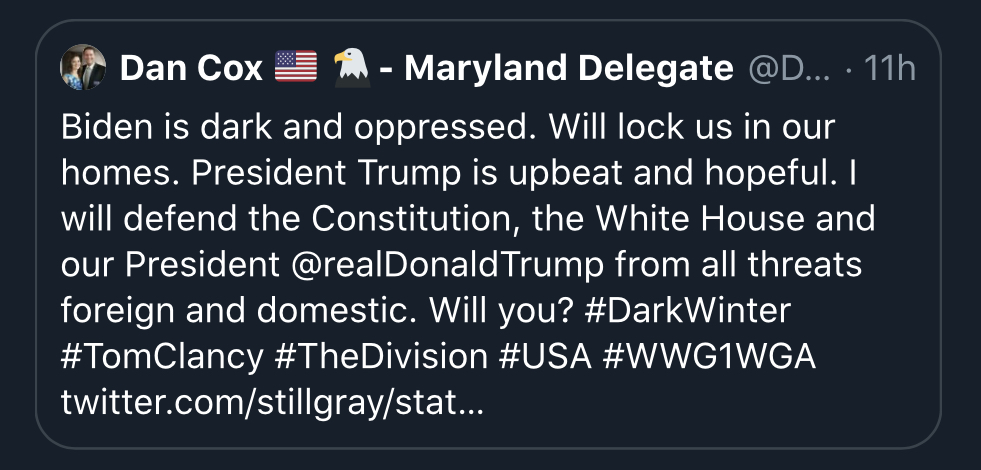By Adam Pagnucco.
It was the spring of 2008. Five-term County Council Member Marilyn Praisner, who had represented District 4 since 1990, had passed away and eight candidates were running for her seat. One of them was a woman. One of them was a person of color born in another country.
Her name was Nancy Navarro.
At that time, District 4 included most of US-29 north of Downtown Silver Spring to the Howard County border and the areas south of Olney, east of Rockville and north of Wheaton. It had little in the way of restaurants or shopping. There was the aging, emptying business district in Burtonsville. There was the decrepit, asphalt-covered shopping center in Glenmont. Here and there, small and mid-size retail strips clung to the sides of New Hampshire Avenue and other major roads. A tiny colony of fast food and lowbrow restaurants had just sprung up on US-29 at Tech Road. Walkable urban shopping was nowhere to be found. If residents wanted that, they would have to drive to Downtown Silver Spring to get it.
None of this was an accident. For years and years, the civic leaders and activists who dominated the district’s politics had worked hard to keep development out. Mrs. Praisner was their champion. They regarded development as a bad thing, attracting both traffic and “undesirables.” But newer residents, including people of color, wanted the restaurants, jobs and shopping that most other people around the county had. Colesville resident Nancy Navarro was one of them, and soon she became their champion.
Navarro stood out during the 2008 special election, and not just because of her gender and heritage. The other seven candidates running for Mrs. Praisner’s seat, including her husband Don, adhered to her vision of little or no growth. (Don Praisner’s campaign slogan was literally “Fulfilling the Vision.”) Navarro instead talked about the benefits of economic development, such as creating jobs for residents and giving them amenities that they had not previously had. Navarro was also supported by many in the business and real estate communities and the public employee unions. None of this sat well with the old guard, who regarded developers as evil and unions as tax-happy. Navarro quickly became a target.
The March debate at the Aspen Hill library typified the direction of the campaign: nearly every other candidate concentrated their fire on Navarro. Their attacks centered on the allegation that she was allegedly a “tool” of developers and unions. (It didn’t help that MCPS Superintendent Jerry Weast invited union leaders to his house to get them to endorse Navarro.) But there was more to it than that. To Navarro’s supporters, the implication of this “tool” argument was that women and people of color were supposedly not intelligent or strong enough to make up their own minds, and that when they made common cause with others, they would inevitably fall under their “control.” Furthermore, while Don Praisner’s supporters criticized Navarro for taking contributions from developers and businesses, Mrs. Praisner had done the exact same thing for years. Later, it was revealed that Don Praisner himself accepted money from a property owner in the district seeking redevelopment.
Much of this is par for the course in the rocky world of political campaigns. After all, opposition to change frequently arises in politics and outrage can be selective. But with Navarro on the ballot, it mutated into something far darker: a toxic stew of racism and xenophobia. Don Praisner defeated Navarro in the 2008 Democratic primary and would serve on the council for less than a year before he passed away. When Navarro returned to run again in the 2009 special election, the forces of extremism were prepared.
First came the illegal anonymous robocalls, a repeat of a tactic used against Navarro in 2008. Then came rumors circulated both on-line and off linking Navarro (who was born in Venezuela) to the Hugo Chavez regime. Help Save Maryland, labeled by the Southern Poverty Law Center as a “nativist extremist group,” began targeting Navarro for her alleged support of “illegal aliens.” Their challenge to Navarro was posted on a racist website equating President Obama to Satan.
Most bizarre of all was an email sent to Navarro’s campaign asking about her immigration status. The author wrote, “I am informally involved with a group of Independents and we are trying to identify a candidate that we feel comfortable endorsing. It would be great if you could put the rumors to rest and provide information as to when (what year) and where, which state, Ms. Navarro received her naturalization or citizenship. Thank you.” In fact, the author – who used a fake name – was a GOP activist who wrote for the party and had testified against drivers licenses for illegal immigrants.
Robin Ficker was involved too. The 2008 GOP nominee, Mark Fennel, was a Ficker protégé, had spread the Hugo Chavez rumors and threatened to unleash “the Dogs of War” on Navarro. In 2009, Ficker “moved” to District 4 to run for the seat and promptly began sending out illegal flyers. During a televised campaign debate, Ficker waved a set of decade-old tax liens against Navarro and her husband in his opponent’s face. Ficker did not use Help Save Maryland’s race-baiting tactics directly, but he did not repudiate them either.
Given this history, it’s no surprise that Help Save Maryland’s participation in Ficker’s term limits initiative was spurred in part by a desire to knock off Navarro. The group has never made its peace with Navarro’s election and has sent out numerous emails slamming her over the years. Supporters of term limits have many motivations, but Help Save Maryland is quite clear about theirs: they want to slam the county’s gates shut to “illegal aliens.”
Will any of this make a difference in the current debate over term limits? Probably not. Few voters have heard of Help Save Maryland and understand what the group believes. Even Ficker is less infamous now that his NBA heckling days are mostly over. In any event, voters are more likely to see term limits through the prism of their own perceived self-interest rather than how they impact specific elected officials.
But make no mistake: the treatment of Nancy Navarro during the 2009 special election is a shameful blot on the county’s political history. It must not be forgotten. It must not be repeated. And hopefully, her successors will be treated with the honor and respect that all upstanding candidates deserve.


